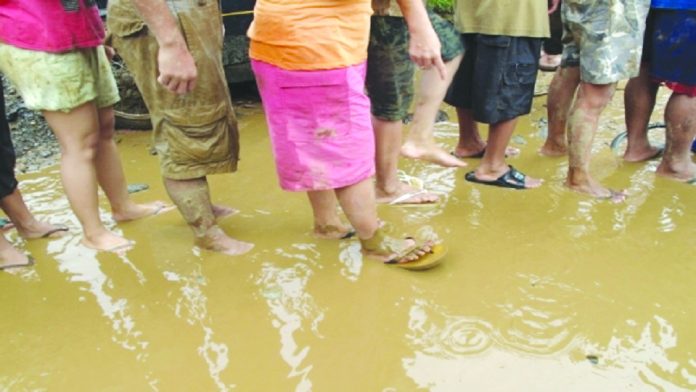
ILOILO – From Jan. 1 to May 21, 22 leptospirosis cases with five deaths were recorded in this province – 29 percent higher than the 17 cases in the same period last year, data from the Provincial Health Office (PHO) showed.
Leptospirosis is a bacterial disease. One becomes infected through direct contact with the urine of infected animals or with a urine-contaminated environment.
The 22 cases were in the following towns: Maasin (two), Oton (two), Banate (two cases with one death), Cabatuan (one), Tubungan (one), Lambunao (one death), Concepcion (one death), Carles (one death), San Miguel (one death), and Pototan, San Joaquin, Zarraga, Leon, New Lucena, Sara, and Mina (one case each).
The component city of Passi recorded two cases.
Do not wade in floodwaters because they could be contaminated, said Dr. Maria Socorro Colmenares- Quiñon, PHO chief.
The following towns have so far no cases: Janiuay, San Rafael, Alimodian, Tigbauan, Dueñas, Barotac Viejo, San Enrique, Calinog, Anilao, Dingle, Balasan, Miag-ao, Guimbal, Estancia, Igbaras, Santa Barbara, Dumangas, Leganes, Pavia, Lemery, Barotac Nuevo, Bingawan, San Dionisio, Ajuy, and Batad.
If wading in water could not be avoided, wear protective gear, said Quiñon.
“If you have a history of wading in floodwaters, or if you are a farmers working in the field with water, please do not hesitate to go to our rural health units for prophylaxis. The PHO has augmented their stocks of antibiotics for prophylaxis. But of course, washing with soap and water is essential after wading,” said Quiñon.
One becomes infected through direct contact with the urine of infected animals or with a urine-contaminated environment. The bacteria enter the body through cuts or abrasions on the skin, or through the mucous membranes of the mouth, nose and eyes.
In the early stages of the disease, symptoms include high fever, severe headache, muscle pain, chills, redness of the eyes, abdominal pain, jaundice, hemorrhages in the skin and mucous membranes, vomiting, diarrhea, and rash./PN



